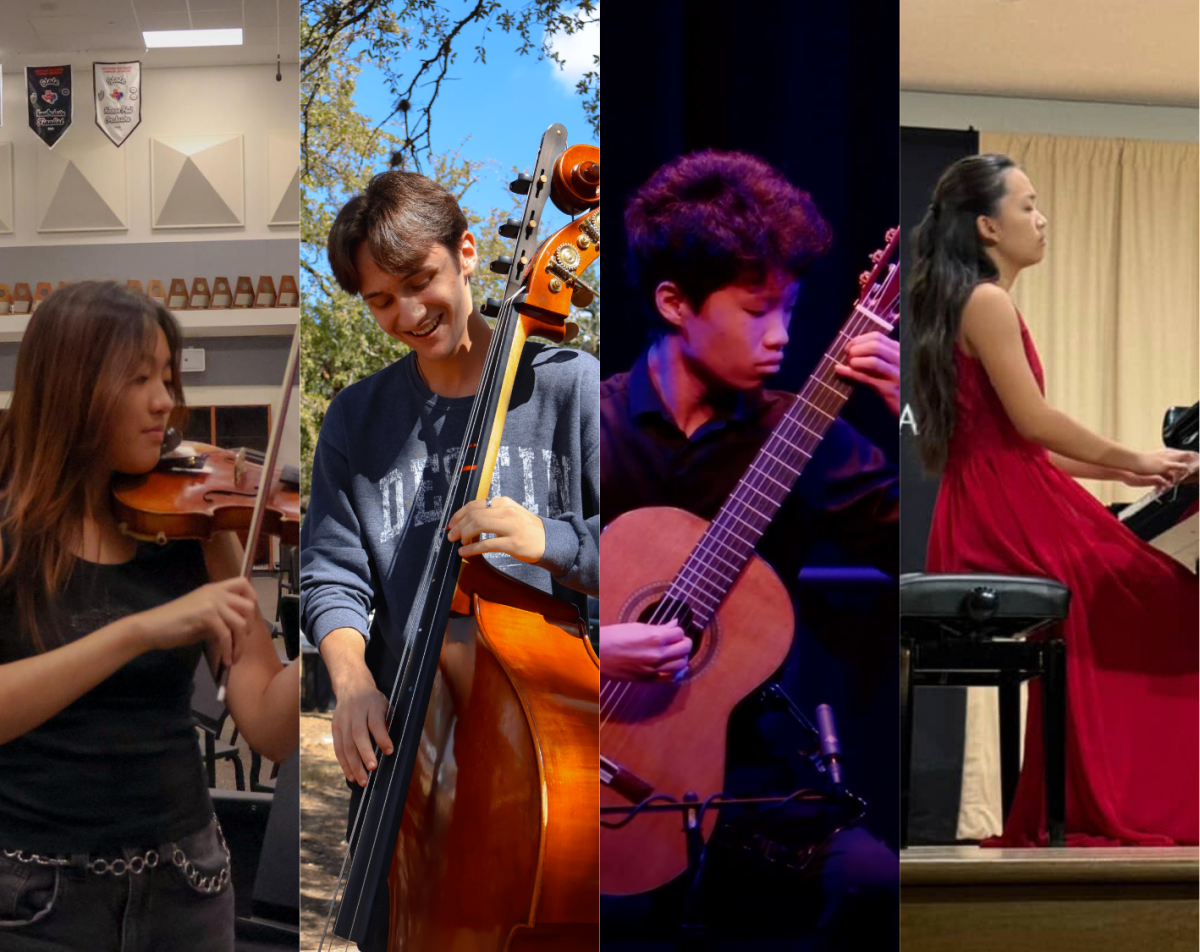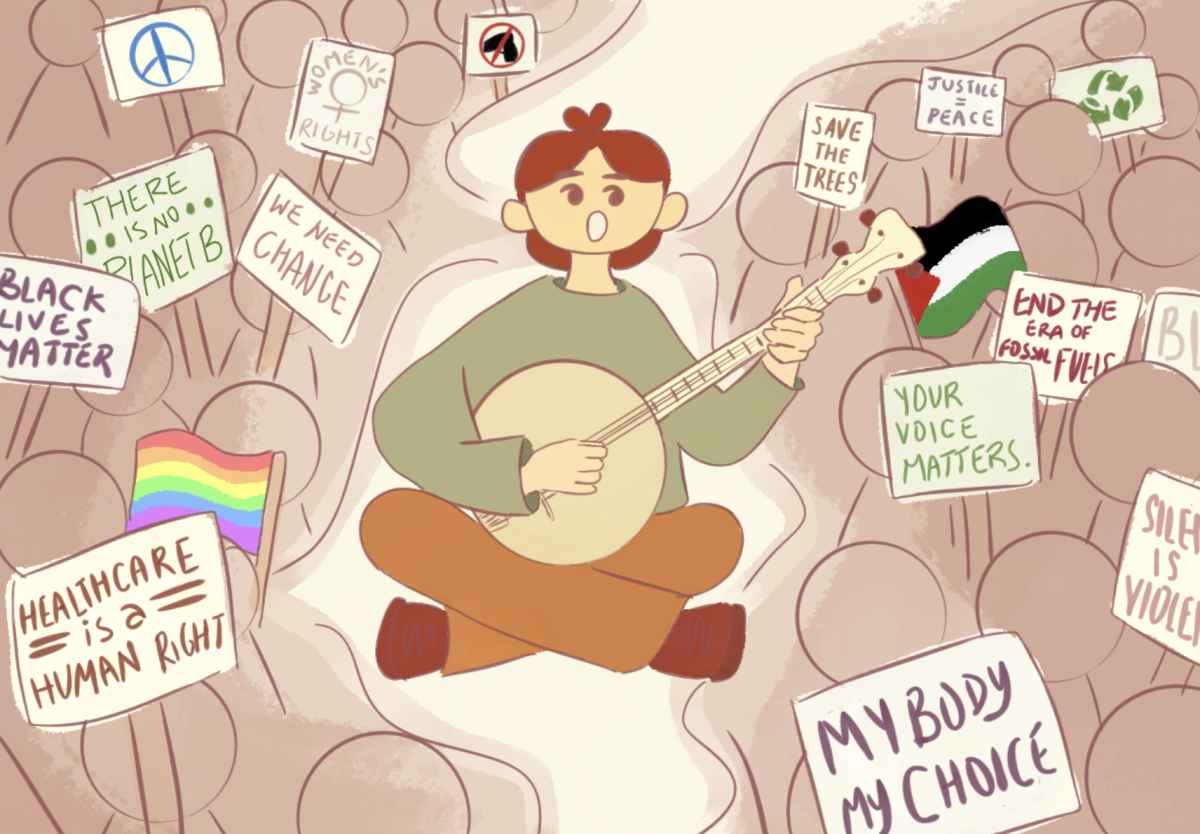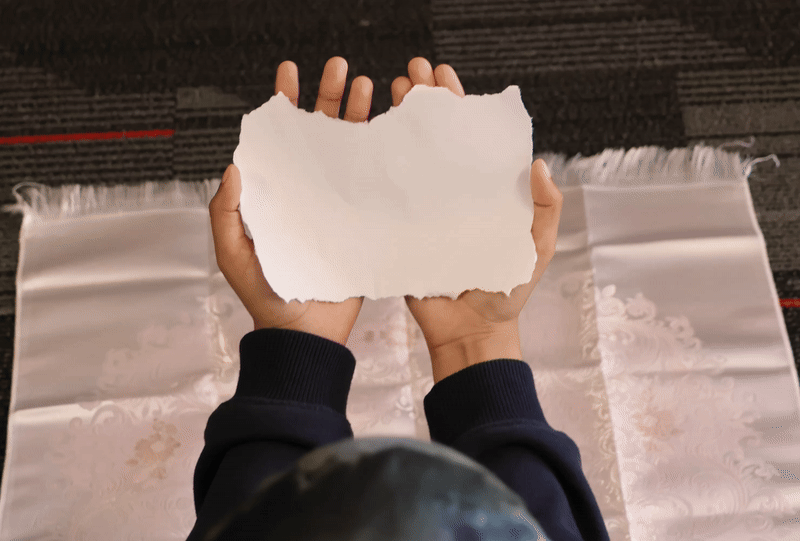The abrupt rebel uprising that overthrew Bashar Al-Assad’s dictatorship in Syria earlier this December has brought about an optimistic outlook for one Alexandria City High School student.
Bashar Al-Assad had ruled Syria since 2000, after assuming the presidency from his father, Hafez, who himself had been in power since 1971. Major anti-government protests began to take place in the country during the Arab Spring in early 2011. Al-Assad then executed a brutal crackdown of the protests, leading to the Syrian Civil War.
Kinda Alhelal is a senior at ACHS, and it was this conflict that led to her family emigrating from Syria to Jordan in 2012, when Alhelal was six years old. In Jordan, where Alhelal has spent the majority of her life, she said that she and her family “were focused both ways. [We] were focused about what’s happening in Syria, but also focused on [our] lives.”
While Alhelal developed a love for drawing and math, she was equally concerned about her family that remained in Syria.
“Most of our family is still there. Our grandparents are still there,” she said.
With the help of the International Migration Organization, an intergovernmental organization dedicated to helping facilitate safe migration, Alhelal was able to move to the United States in June of 2023. Alhelal says that better job and education opportunities are what drew her and her family to the U.S.
“In Jordan, they don’t give as [many] opportunities and freedoms for Syrian refugees as they do here in the United States,” she said.
After years of stalemate in an extremely complicated conflict, the Syrian Civil War reignited in November, after rebels, primarily led by the group Hayat Tahrir Al-Sham (HTS), conducted a surprise offensive from the Northwestern part of the country. HTS is an Islamic military group that was the major rebel force during the latter stages of the Civil War, and are credited with the overthrow of the government. They quickly took Aleppo, Syria’s second largest city, and headed South, eventually entering Damascus, Syria’s capital city. Having lost the confidence of his closest allies, Russia and Iran, Al-Assad forfeited without putting up much of a fight.
The rebels’ surprising victory ended the decade-long conflict that forced Alhelal out of her homeland 12 years ago. Having been only six years old at the time, she said she “doesn’t really remember much” about her life in Syria. There are, however, many aspects of her life that still evoke a feeling of home.
“Our traditional and religious holidays, such as Eid and Ramadan, remind me [of] back home, because [I’m] surrounded with [my] family and [we’re] having a good time,” she said.
While no one could have predicted the sudden toppling of Syria’s government, Alhelal says that she “thought that at some point it [had] to end, but wasn’t aware when [it would].”
Even though she didn’t know the ultimate timing of the conflict, she was certain that the rebels would prevail: “No matter what [happened] at the end, the people [are] right, which [are] the rebels.”
Alhelal also cited her faith in the Quran, Islam’s holy book.
“It says [that] after you’re patient, you’re going to receive victory,” she said.
Now, Alhelal is optimistic about the new government that is being formed in Syria, since the government “is basically the Revolutionary Army that freed Syria from a dictatorship that had been going on for 50 years.” Not only is she excited for the potential of increased freedoms for the people currently living in Syria, she also “feels happy because … Syria has freedom now that gives [us] more hope and a chance to come back to Syria, [our] homeland.”
This interview was conducted with Kinda Alhelal’s cousin, Zain, translating between English and Arabic.
This story was originally published on Theogony on December 18, 2024.





































